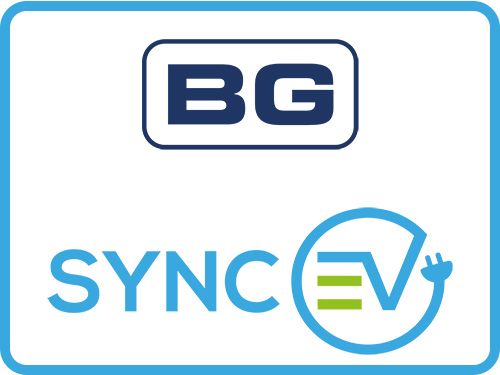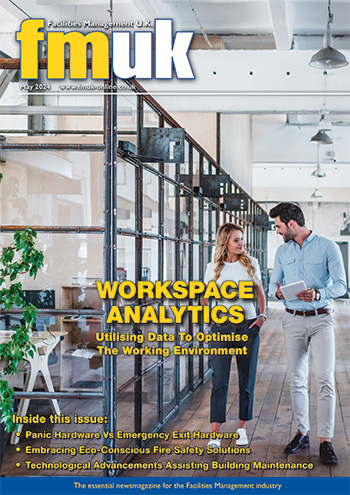Construction Company Garic Becomes First In Its Industry To Pledge To Provide Male Incontinence Bins Supporting Staff And Customers

The Dispose with Dignity campaign launched in February this year, and aimed to raise awareness of the experience of prostate cancer survivors following their life‑saving surgery. One in eight men will be diagnosed with prostate cancer in their lifetime, increasing to one in four in you are a black man or you have a family history of the disease.
For those men who do receive treatment, most will experience urinary incontinence as a side effect; some for just a few months, many for a few years or even the remainder of their lives.
A report, co‑authored by phs and Prostate Cancer UK, Binning the taboo: disposing with dignity, revealed that more than half (51%) of the men surveyed, of all ages, had experienced symptoms associated with urinary incontinence. This is leaving nearly eight in 10 men anxious to leave the house, including going to work.
Those in particularly manual roles such as in construction, are affected more keenly, due to the nature of their work – and many men end up leaving their roles prematurely or having a more stressful day to day experience when changing their incontinence products.

“At Garic, we’ve been going on a similar journey to that of most of our customers – working hard to increase the diversity of our business. That said, we still have a male dominant workforce and the stats tell us Incontinence is likely to be affecting many members of our team.
“The wellbeing and care of our teams is of utmost importance to us. phs’ research has given us the confidence to provide these facilities to our own teams and to our customers, and as such, know that we will help reduce the anxiety created by this often taboo subject.”
Due to the physical nature of manual roles in construction, the strain on men in these roles can mean that they are more prone to leaking than those in more sedentary professions. This may mean that they need to change their products more often, and be caught without adequate facilities at work causing stress and anxiety.
Carey Gibb, 61, is a stone mason from Arbroath in Scotland. He was diagnosed with prostate cancer in September 2017.
After his prostate was removed, Carey suffered from incontinence and had treatment to tackle his persistent bladder problems.
Carey said: “Some days it’s better, but I am still struggling right now.
“Long walks are quite challenging, because everything seems to flood out of you a lot more, but it doesn’t stop me. I’ve done lots of walks to fundraise and raise awareness and completed my own March for Men for Prostate Cancer UK in Arbroath in 2019.
“As a stone mason, I do a lot of lifting and manual work, and sometimes it does affect my ability to work or what work I can do. If I’m working in different locations, I have to think to myself ‘Where I am going?’ and make sure that I know where the toilet is. I always make sure that I take pads with me and different clothes to change into in case I leak.
“If I’m out and about, I mainly use the disabled toilets or parent and toddler spaces so that I know I have privacy and some sort of bin where I can dispose of my pads. Sometimes, if there are separate male and female bathrooms, I change the pad in the men’s and nip into the ladies' loo and leave the pad in the period products bin. I do check there’s nobody in there, and if someone does see me then I explain why I’ve had to nip in and everybody is really understanding, but obviously I would prefer not to do it and for there to be bins in the men’s bathroom.
“The weight of planning those small things out does take a toll over time. I have to think about where the toilets are every day and often there are no facilities at all. Even at work I’ve had to use the back of the van and change there some days because there’s nothing on the site, and after a while it all wears you down.
“My mental health has deteriorated a lot as a result of the incontinence. I don’t go out as much as I would like to, and if I go out I don’t drink a lot because I’m nervous of leaking.
“This all sounds really negative, but I’m really open about my incontinence and I tell everyone about how it happened and tell people to know their prostate cancer risk, speak to their GP, and consider their treatment options carefully because there are side effects to think about.
“This is a process I have to go through and it’s a way of life now. There are many worse off than me, so I get on with things.
“In the meantime, I think it would be an absolutely brilliant step in the right direction for businesses and organisations to provide male incontinence bins for us. I’d like to feel like my local community and the businesses in it recognise the problems that people like me face. It would make it feel as if we’re in it together.”
Garic has now completed its initial partnership launch with phs and Prostate Cancer UK, and has rolled out male incontinence bins at each of its depots.
Neil Page continues: “At Garic, one of our company values is ‘do the right thing’ and this culminates in us working with and supporting lots of different charities and our communities that we work in.
“We were blown away by the careful and considered approach phs has taken to this initiative and we’re really excited to be working in an exclusive construction partnership to support both our own colleagues and our customers.
“When you’re coming to work, you want to feel supported, looked after, and that your employer has your best interests at heart. So that’s why it’s important for us to provide dignity to those who need it, in a discreet way, behind the cubicle door in private.
“Where you work should feel like a safe place and whatever we can do as a business to reduce stress and anxiety to our colleagues and customers that makes their working day better, we’re all in. We’re really excited this initiative will be rolled out as a service to all of our customers so they too can support their own colleagues.”

























































